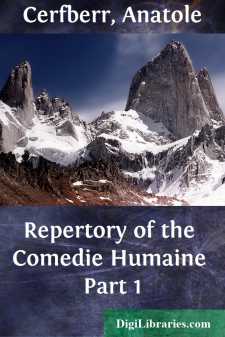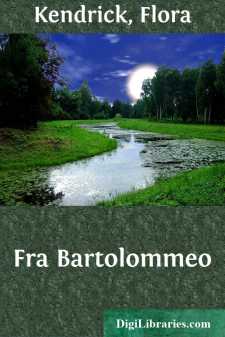Non-Classifiable
- Non-Classifiable 1768
Non-Classifiable Books
Sort by:
by:
John Gilbert
THE BOY'SBOOK OF BALLADS. Robin Hood and Guy of Gisborne.When shawsbe sheen,and swards full fair,And leaves both large and long,It is merry walking in the fair forestTo hear the small birds' song.The woodweelsang, and would not cease,Sitting upon the spray,So loud, he wakened Robin Hood,In the greenwood where he lay.Now by my faith, said jolly Robin,A sweavenI had this night;I dreamt me of...
more...
Introduction Goethe, who saw so many things with such clearness of vision, brought out the charm of the popular ballad for readers of a later day in his remark that the value of these songs of the people is to be found in the fact that their motives are drawn directly from nature; and he added, that in the art of saying things compactly, uneducated men have greater skill than those who are educated. It...
more...
Treats of Early Efforts to Fly, etcetera. It is man’s nature to soar intellectually, and it seems to have been his ambition from earliest ages to soar physically. Every one in health knows, or at some period of life must have known, that upward bounding of the spirit which induces a longing for the possession of wings, that the material body might be wafted upwards into those blue realms of light,...
more...
"Oh, heard ye of a silly harper,Wha lang lived in Lochmaben town,How he did gang to fair England,To steal King Henry's wanton brown?" Once upon a time, there was an old man in Lochmaben, who made his livelihood by going round the country playing on his harp. He was very old, and very blind, and there was such a simple air about him, that people were inclined to think that he had not all his...
more...
by:
Anatole Cerfberr
TRANSLATOR'S PREFACE "Work crowned by the French Academy" is a significant line borne by the title-page of the original edition of Messieurs Cerfberr and Christophe's monumental work. The motto indicates the high esteem in which the French authorities hold this very necessary adjunct to the great Balzacian structure. And even without this word of approval, the intelligent reader needs...
more...
by:
Anatole Cerfberr
LA BASTIE LA BRIERE (Ernest de), member of a good family of Toulouse, born in 1802; very similar in appearance to Louis XIII.; from 1824 to 1829, private secretary to the minister of finances. On the advice of Madame d'Espard, and thus being of service to Eleonore de Chaulieu, he became secretary to Melchior de Canalis and, at the same time, referendary of the Cour des Comptes. He became a...
more...
PREFACE In presenting this study of Balzac's intimate relations with various women, the author regrets her inability, owing to war conditions, to consult a few books which are out of print and certain documents which have not appeared at all in print, notably the collection of the late Vicomte de Spoelberch de Lovenjoul. The author gladly takes this opportunity of acknowledging her deep gratitude...
more...
CHAPTER I. His Naval Renown—His Career in the Colonial Mercantile Marine Service—Appointed to the "Lexington" by the Continental Marine Committee—His First Cruise. The American Navy by its achievements has won enduring fame and imperishable honor. The careers of many of its heroes have been narrated fully, and oft in fulsome terms. All Americans unite in these tributes of praise where...
more...
Letter I: Two months at sea—Melbourne. Port Phillip Hotel, Melbourne. September 22d, 1865. .... Now I must give you an account of our voyage: it has been a very quick one for the immense distance traversed, sometimes under canvas, but generally steaming. We saw no land between the Lizard and Cape Otway light—that is, for fifty-seven days: and oh, the monotony of that time!—the monotony of it! Our...
more...
by:
Flora Kendrick
CHAPTER I. THOUGHTS ON THE RENAISSANCE. It seems to be a law of nature that progress, as well as time, should be marked by periods of alternate light and darkness—day and night. This law is nowhere more apparent than in the history of Art. Three times has the world been illuminated by the full brilliance of Art, and three times has a corresponding period of darkness ensued. The first day dawned in...
more...











